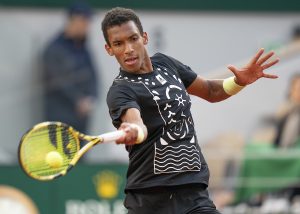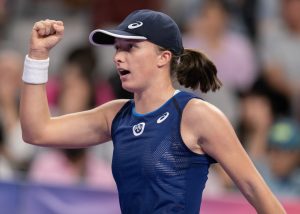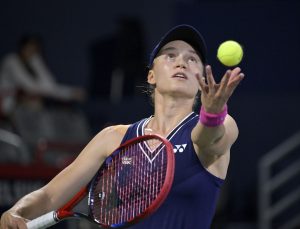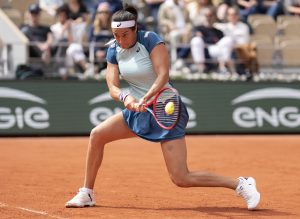The greatness (or otherwise) of your opponent determines the greatness (or otherwise) of your victory. That is why even the most impassioned Fed-Heads have developed at least a grudging respect for Rafael Nadal. Without Nadal spurring Federer on for the last decade and more, it is highly unlikely that even the sainted Roger would have reached the dizzying heights that he has. And last weekend, to add to all his other remarkable accolades Nadal proved that he is undoubtedly the greatest Davis Cup player of his era. In that regard at least, he betters Federer.
To recap, last weekend Nadal played his first competitive tennis of any kind since he reluctantly limped out of his Australian Open quarterfinal against Marin Cilic in January when he competed in another quarterfinal, this time for Spain against Germany in the Davis Cup. Nevertheless, he showed absolutely no sign of any ring-rustiness by comprehensively winning his two singles matches. First, after Germany’s Alexander Zverev had won the opening singles match against David Ferrer, Nadal beat Philipp Kohlschreiber 6-2 6-2 6-3 to level the tie at 1-1. Then, after Spain had lost the doubles to go 2-1 down in the tie, Nadal also beat Zverev (who, it must be remembered, is the current World No.4) in straight sets, winning 6-1 6-4 6-4. Although it was David Ferrer who saw Spain home, narrowly winning a five-set epic against Kohlschreiber 7-5 in the fifth set of the final singles rubber, there is no doubt that it was Nadal and his two points that were the deciding factor in Spain’s victory.
Of course, there is nothing new in Nadal winning Davis Cup ties. His twin victories in Valencia meant that he has now set a remarkable Davis Cup record for combined singles and doubles victories of 24 wins in a row. In fact, he has only ever lost one Davis Cup singles match (to the Czech Republic’s Jiri Novak in 2004, when he was making his Davis Cup debut) and one Davis Cup doubles match (in 2005, when he was paired with Feliciano Lopez and they lost another five-set epic 9-7 in the fifth set to the Italian pairing of Daniele Bracciali and Giorgio Galimberti). Nadal may no longer play Davis Cup doubles, but he remains virtually unbeatable in the premier team tournament of men’s tennis.
Like seemingly every other top male player now, Nadal has not always played in the Davis Cup throughout his career. As the injuries have mounted up and the inevitable toll has been exacted on his already fragile frame, he has frequently had to miss Davis Cup ties, particularly given the ludicrous scheduling of many of them in the week after Grand Slam tournaments. Nevertheless, he has played in three of the four Davis Cup finals that Spain have won since he began playing for his country (in 2004, 2009 and 2011) and on the other occasion that Spain have triumphed (in 2008) he played in the earlier rounds, including the semi-final victory against the USA.
That record compares very favourably indeed with that of the other members of the so-called “Big Four” who have dominated men’s tennis over the last ten years: Roger Federer; Novak Djokovic; and Andy Murray. The other three have all won Davis Cups for their countries, but those were isolated victories (Djokovic winning with Serbia in 2010, Federer with Switzerland in 2014 and Murray with Great Britain in 2016) rather than part of a sustained period of success. By contrast, Nadal has been absolutely instrumental in making Spain arguably the pre-eminent men’s tennis nation in the early 21st century, which is all the more remarkable given that the country’s first ever Davis Cup success only came in the year 2000.
The only real regret about this remarkable era in men’s tennis, which most tennis historians regard as the greatest ever in men’s tennis, is that the individual rivalry that has been played out in so many Grand Slams has never extended to the team format of the Davis Cup. For all their legendary duels at Wimbledon, the French Open and the other Majors, none of the “Big Four” have ever competed against each other in the Davis Cup and as they are all now approaching the end of their careers it is unlikely that they ever will. How incredible would it have been if, say, Federer and Stan Wawrinka had faced Nadal and Ferrer at their absolute peak in the Davis Cup? That they will almost certainly never do so now is perhaps the ultimate proof of the decline in the status of the once great Davis Cup.
It’s too late to fix that for this remarkable generation of male players, but for the “Next Gen” of Zverev, Shapovalov et al it must be a priority for the ATP to finally come up with a new format and schedule for the Davis Cup. If they can, the event may regain at least some of the prestige it enjoyed when the USA and Australia were duking it out with each other for much of the second half of the 20th century.
However, none of the complaints and concerns about the Davis Cup’s decline detract from Nadal’s reputation as the greatest Davis Cup player of his era, and arguably of any era: only the likes of Rod Laver, who won the Davis Cup five times with Australia, can legitimately contest that status. And if Nadal can survive the rigours of the remaining Majors of the season sufficiently to compete for Spain in their semi-final against holders France in September, then just as Federer has surpassed “Rocket Rod” as the greatest men’s player ever so Nadal might surpass him as the greatest Davis Cup player ever.






